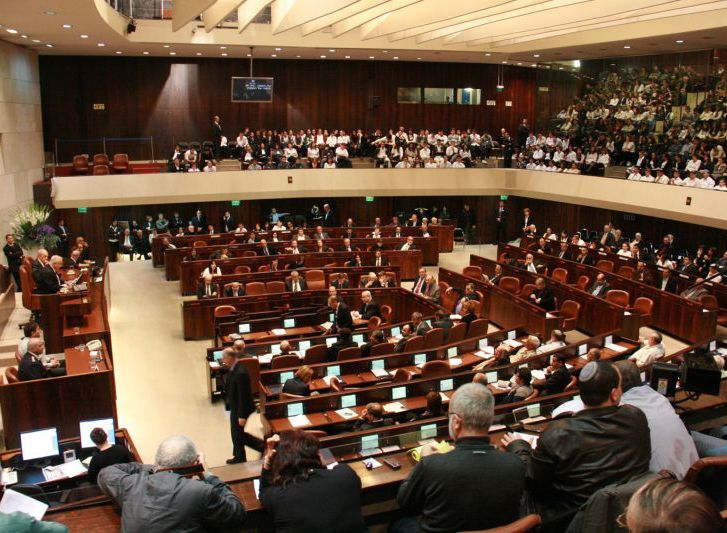9 Justices of Israeli Supreme Court to Hear Petition on the "Absentees' Property Law" and its Applicability to Palestinian West Bank residents who own properties in East Jerusalem
Adalah: “The application of the law would amount to the confiscation of these properties as it would allow them to be sold in the free market”.
Tomorrow, 10 September 2013, the Israeli Supreme Court will hold a hearing on the application of the Absentees' Property Law to Palestinian West Bank residents who own properties in East Jerusalem, and the transfer of ownership of these properties to the Custodian of Absentees' Properties', which belongs to the Ministry of Finance. Such a step would lead effectively to the confiscation of the property and would allow it to be sold on the private market, thereby severing any link between the owners and their property.
The Supreme Court proceedings concern four civil appeals. The Custodian of Absentee Property initiated two of these appeals in 2006, while the other two appeals were submitted in 2007 and 2009 respectively by West Bank Palestinians who own properties in East Jerusalem.
Considering the extreme importance of the issue and its various aspects, Adalah asked the Supreme Court to intervene and to present an opinion as an amicus curiae. Adalah Attorney Suhad Bishara, who prepared the brief, explained that the legal position of Attorney General Yehuda Weinstein, who supports the application of the law in East Jerusalem, undermines the status quo that has prevailed for decades. Since the occupation of Jerusalem in 1967, successive Attorney Generals have taken the position that the law does not apply to the properties of the West Bank residents that are located in East Jerusalem.
In Adalah’s legal opinion, Attorney Bishara argued that, “According to Israel’s decision to apply the Absentees’ Property Law to Palestinians in the West Bank, the law then would also be applicable to properties in Israel that are owned by Jewish settlers in the West Bank.” Moreover, Adalah argued that the law does not address the legal status of the property owner, even a citizen of Israel, but rather his or her place of residency. The clear discrimination between Palestinian residents of the West Bank and Jewish settlers in the West Bank, in illegal settlements, constitutes a violation of the principles of non-discrimination set forth in the International Convention on the Elimination of All Forms of Racial Discrimination, which also applies to the Occupied Palestinian Territory (OPT).
Adalah emphasized that considering West Bank residents to be "absentees" does not result in any change in their legal status, but rather, is a result of a decision unilaterally taken by the State of Israel, when it decided to annex occupied areas of Jerusalem to its territory. In this situation, the decision to declare residents of the West Bank as "absentees" is deplorable, as they never left their homes. Former Attorney General Menachem Mazuz has written an opinion on this matter, stating that "the absence of owners of property in East Jerusalem who are from the West Bank is technical in nature, since they were transformed into absentees through a unilateral decision made by the State of Israel." Mazuz added a legal point of view: "the issue concerns ‘present absentees’ who are deprived of their right to property by the impact of the sweeping technical wording of the law."
The Absentee Property Law-1950 aims to control all the property of Palestinians who fled and became refugees during the Nakba of 1948, and to transfer its ownership of the State of Israel. According to the law, every individual who was living in one of the countries considered to be an "enemy state" in 1947 will be deemed as an "absentee" and will have his or her his property confiscated and transferred to the Custodian of Absentees' Properties. AG Weinstein – in contrast to the opinions of former AGs – decided that the law should apply to the East Jerusalem properties of residents of the West Bank.
The Absentee Property Law was enacted in a clear and particular political-judicial context, and it therefore cannot be simply developed to suit a shifting geopolitical reality. The official position that has been declared by the State of Israel is that the law is an emergency law and is a direct result of the state of war, and that it does not intend to confiscate property forever. Therefore, the interpretation of the law must always be linked to the time and context in which it has been legislated. This is the historical context of the Nakba of 1948; the law cannot be turned into regular property law.
Therefore, the application of the Absentee Property Law to East Jerusalem properties violates international humanitarian law (IHL). The applicable law in the case of Palestinian residents of the West Bank is IHL, which prohibits the occupying power from harming the civilian property in the absence of military necessity. Additionally, international law considers East Jerusalem as occupied territory and rejects Israel sovereignty over it, as was demonstrated in the International Court of Justice's decision regarding its advisory opinion on the Separation Wall in the West Bank. Therefore the confiscation of personal property in East Jerusalem belonging West Bank residents constitutes a grave violation of Israel's duties as an occupying power.
See the Amicus Opinion filed by Adalah to the Supreme Court (English)
















